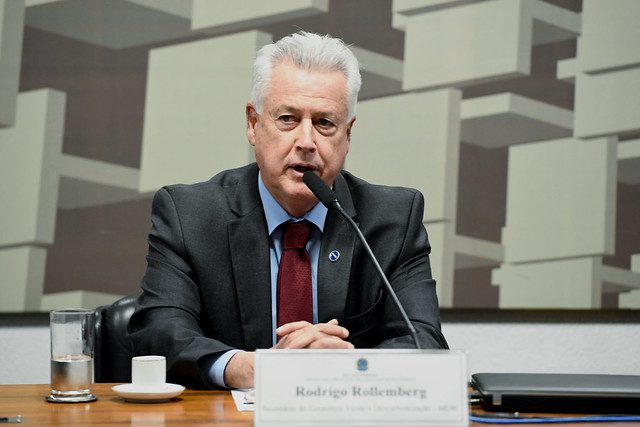The approval of the bill regulating the carbon market is a historic milestone and should provide economic opportunities and social benefits for Brazil and the world. This is the assessment of the Secretary of Green Economy, Decarbonization and Bioindustry of the Ministry of Development, Industry, Trade and Services (MDIC), Rodrigo Rollemberg.
The PL 412/2022, which establishes the Brazilian System of Greenhouse Gas Emissions Trading (SBCE), was approved last Wednesday (4) in the Senate Environment Committee definitively. Now, if there is no appeal from senators, it goes to the analysis of the House of Representatives.
The proposal aims to reduce greenhouse gas emissions and meet the determinations of the National Policy on Climate Change. In an interview with the Brasil61.com portal, Rollemberg celebrates the unanimous approval of the text. The secretary highlights the possible impacts of the regulation of the carbon market and is convinced that the proposal will be definitively approved before the United Nations Conference on Climate Change (COP28), scheduled to take place between November 30 and December 12 in Dubai, in the United Arab Emirates.
Brasil 61: Secretary, what is your assessment of this project that regulates the carbon market in the Senate?
Rodrigo Rollemberg: It’s a historical milestone. Brazil was lagging in this process. The regulated carbon market can bring a billion-dollar market to Brazil. It was built with great care, with a lot of consistency so that it matches with international markets because this will create competitiveness conditions for Brazilian companies, it will create many opportunities for Brazilian companies that innovate in their production processes, reducing greenhouse gas emissions. And it will also reduce costs for companies that need to reduce their emissions, especially those in energy. So, the carbon market is a market that will bring many opportunities for all economic sectors in Brazil.
BR 61: Do you believe that this proposal can become law before COP28, which begins on November 30, in Dubai?
RR: I’m convinced that we will approve it in the House, definitively approve it before COP. Not just this project but other projects of this green agenda, like fuels of the future, like off-shore wind, project with hydrogen, that if we have the capacity to approve all of them by the end of the year, presenting a significant reduction in deforestation as we are achieving it, Brazil will be a major destination for international investments, due to a global need to invest in the energy transition, to invest in a manufacturing industry that can produce with a low carbon footprint. Brazil has the conditions to be a hub that contributes to companies to speed up their decarbonization process, reducing the costs of this decarbonization process.
BR 61: In your opinion, is this project approved in the Senate already mature or is there a need for changes?
RR: The project is so mature that it was unanimously approved. All political sectors represented in the House voted in favor of the project and I am convinced that, using the same strategies that we used in the Senate, with a lot of dialogue, much information, showing the benefits that the project will bring to various economic sectors, we will also quickly approve it in the House of Representatives.
BR 61: From the government’s perspective, what are the environmental and economic impacts of this carbon market?
RR: Economically speaking, what I can say is that there’s a study by Way Carbon and the International Chamber of Commerce that estimates that this market can move up to US$ 120 billion in Brazil by 2030 and that Brazil can be responsible for a large share of the international carbon credit market. From an environmental point of view, it will be a stimulus for reforestation processes, for more and more use of renewable energy, for the transformation of the energy matrixes of companies that today use a dirty matrix for a clean one, so it is a market that opens economic opportunities and at the same time economic and social benefits not only for Brazil but for the entire planet.
![]()

